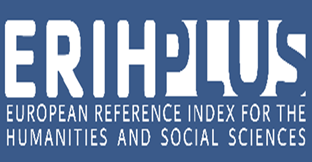The 550th anniversary of the foundation of Kazakhstan’s statehood in 2015 an assessment from a neutral Central European country
Views: 296 / PDF downloads: 291
DOI:
https://doi.org/10.32523/2664-5157-2021-4-36-43Keywords:
History, statehood, Kazakhs, Kazakh Khanate, Kazakhstan, Central AsiaAbstract
A crucial aspect of the «politics of history» and «politics of memory» of all post-Soviet republics is the relationship to statehood. This article examines, from the perspective of a Central European observer, the commemorations held in Kazakhstan in 2015 on the occasion of the creation of the Kazakh Khanate, which is assumed to have taken place in 1465.
Until recently, the history of the Kazakh Khanate was actually not an object of Eurasian research in the countries of Western Europe, although it contained many historical events and facts that influenced the history of the development of regional states and peoples.
The starting point for this analysis are statements by politicians from Russia, whose importance for present-day Kazakhstan can hardly be underestimated not only in the areas of politics, economics, security, media, culture, etc., but also represents an important point of reference in questions of
«history policy».
Questions of the evolution of Kazakhstan‘s statehood and Kazakh ethnogenesis naturally enjoy much more attention among Kazakhstan‘s historians since 1991 than they did in Soviet times. In the present context, such topics are by no means «only» of historiographic importance, but also of eminent current political significance. Strengthening the statehood of today’s Kazakhstan as well as the faith of its citizens of all nationalities in it could contribute to counteracting possible territorial claims by individual neighbouring states. However, it is difficult to judge from the outside what influence the 2015 celebrations had on Kazakhstan’s politics and multi-ethnic society or to what extent they were able to leave lasting traces precisely there.
Downloads
Reference
Muminov Askar. Vladimir Putin zablyudilsya v poiskach kazakhskoy gosudarstvennosti [Vladimir Putin lost his way in search of Kazakh statehood]. Kursiv, September 3, 2015. URL: https://inosmi.ru/sngbaltia/20140903/222765652.html (November 4, 2021). [in Russian]; Putin. U kazachov nikogda ne bylo gosudarstva [The Kazakhs never had a state]. YouTube. August 29, 2014. URL: https://www.youtube.com/watch?v=0vxCXFFXMPQ (November 4, 2021). [in Russian].
Kazakhstan s Rossyey. Novosti Russkogo Mira [Kazakhstan with Russia. News of the Russian World]. September 2, 2014. URL: http://webnovosti.info/новости/казахстан-с-россией/ (November 4, 2021). [in Russian].
Vyskazyvaniya Zhirinovskogo o Kazakhstane rassmotryat v Gosdume RF [Statements of Zhirinovsky about Kazakhstan will be considered in the State Duma of the Russian Federation]. Tyurkist. January 8, 2015. URL: http://www.turkist.org/2015/01/provokator-jirik.html (November 4, 2021). [in Russian].
Dickinson Peter. Putin’s Ukraine War: Russian MP recalls efforts to push civil war myth. Atlantic Council. November 2, 2021. URL: https://www.atlanticcouncil.org/blogs/ukrainealert/putins-ukraine-war-russian-mp-recalls-efforts-to-push-civil-war-myth/?mkt_tok=NjU5LVdaWC0wNzUAAAGA gcy48LlZGKRzPoKcWNuFxgCeWhvNkyDy-RWmeS9F2TN4ZAcJfMTs1bOQpEy39lp X2MNir-fPvQx0xlIT5pXDivOb4tgxhucRyF7pdKtK (November 3, 2021).
Putin Vladimir. On the Historical Unity of Russians and Ukrainians. President of Russia. July 12, 2021. URL: http://en.kremlin.ru/events/president/news/66181 (November 4, 2021).
Solschenizyn Alexander. Russlands Weg aus der Krise. Ein Manifest. München, 1990. 9 p.
Martha Brill Olcott. Kazakhstan. Unfulfilled Promise? Washington, D.C. u. a., 2010. 25 p.
Malek Martin, Schor-Tschudnowskaja Anna (eds.). Der Zerfall der Sowjetunion. Ursachen – Begleiterscheinungen – Hintergründe. Baden-Baden, 2013.
Sembinov Murat. Stanovlenie natsional’noy istorii Kazakhstana. [Formation of the national history of Kazakhstan] K. Eymermakher and G. Bordyugov (eds.), Natsional’nye istorii v sovetskom i postsovetskikh gosudarstvakh.[National histories in the Soviet and post-Soviet states.] Moscow, 1999. P. 179-194. [in Russian].
Lutz Raphael. Geschichtswissenschaft im Zeitalter der Extreme. Theorien, Methoden, Tendenzen von 1900 bis zur Gegenwart. München, 2003. P. 60-61.
Kozybaev M.K. Istoriya Kazakhstana s drevneyshikh vremen do nashikh dney. Natsional’naya Akademiya Nauk Respubliki Kazakhstan [History of Kazakhstan from ancient times to the present day. National Academy of Sciences of the Republic of Kazakhstan]. Almaty, 1993. P. 148. [in Russian].
Kazakhskoe khanstvo: kratkaya istoriya sozdaniya. Ofitsial’nyy sayt, posvyashchennyy 550-letiyu Kazakhskogo khanstva [Kazakh Khanate: a short history of creation. Official website dedicated to the 550th anniversary of the Kazakh Khanate]. URL: http://550kazakhan.kz/?p=2064&lang=ru (15.11.2015). [in Russian].
Jürgen Paul. Zentralasien. Frankfurt, a.M, 2012. 282 p.; Grigol Ubiria. Soviet Nation-Building in Central Asia: The Making of the Kazakh and Uzbek Nations. Abingdon-New York, 2016. 33 p.
Marie-Carin von Gumppenberg. Staats- und Nationsbildung in Kasachstan. Opladen, 2002. P. 31-32.
Lillis Joanna. Kazakhstan: Statehood Celebrations Remind Citizens Who’s Boss. Eurasia.net. October 13, 2015. URL: http://www.eurasianet.org/node/75506 (November 5, 2021).
Downloads
Published
How to Cite
Issue
Section
License
Copyright (c) 2022 Turkic Studies Journals

This work is licensed under a Creative Commons Attribution-NonCommercial 4.0 International License.
























